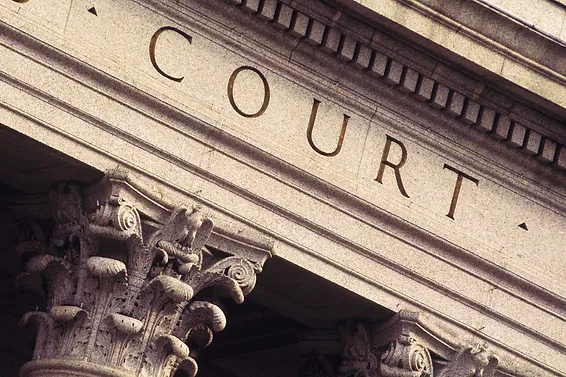The National Football League (“NFL”) and six of its member clubs (jointly “Defendants”) moved to compel arbitration of a putative class action brought by Plaintiffs Brian Flores (“Flores”), Steve Wilks, and Ray Horton—current and former NFL coaches—alleging, in relevant part, claims of racial discrimination under a federal statute and state and local law. Ultimately, the Second Circuit Court of Appeals (“Second Circuit”) affirmed the district court’s denial of the motion to compel arbitration and reconsideration thereof.
A. Flores’s Claims against the Denver Broncos and NFL are Not to be Compelled to Arbitration.
In January 2019, while still under contract as a coach with the Patriots, Flores interviewed for the position of head coach of the Broncos. He alleges that the Broncos discriminated against him because of his race when they failed to hire him. A month later, in February 2019, Flores was hired as head coach of the Miami Dolphins.
At the time of his interview with the Broncos, Flores’s employment contract with the Patriots included two provisions bearing on the arbitrability of his claims. First, Flores agreed to a club-specific arbitration agreement with the New England Patriots. Second, Flores agreed “to comply at all times with, and to be bound by, the NFL Constitution,” which was incorporated by reference into his employment agreement “in [its] present form and as amended from time to time hereafter.” Section 8.3 of the NFL Constitution grants the NFL Commissioner “full, complete, and final jurisdiction and authority to arbitrate” several types of disputes, including “[a]ny dispute between any . . . coach . . . and any member club or clubs.”
The United States Supreme Court’s long-standing “effective vindication” doctrine establishes that even Federal Arbitration Act (“FAA”)-protected arbitration agreements are subject to invalidation when they “operat[e] . . . as a prospective waiver of a party’s right to pursue statutory remedies.” The United States Supreme Court has explained that only “so long as the prospective litigant effectively may vindicate its statutory cause of action in the arbitral forum, [will] the statute . . . continue to serve both its remedial and deterrent function.” The Second Circuit stated an agreement to submit statutory claims to a non-arbitral process may amount to “contractual waiver[] of substantive rights and remedies” that falls outside FAA protection and is unenforceable under the foundational principles of the effective vindication doctrine.
First, the Second Circuit held that Flores’s agreement under the NFL Constitution to submit his statutory claims against the Broncos and the NFL to the unilateral substantive and procedural discretion of the NFL Commissioner—the principal executive of one of Flores’s adverse parties—provides for arbitration in name only and accordingly lacks the protection of the FAA. Second, the Second Circuit held that Flores’s agreement to submit his statutory claims against the Broncos and the NFL to the unilateral discretion of the NFL Commissioner is unenforceable because the agreement fails to guarantee that Flores can “vindicate [his] statutory cause of action in [an] arbitral forum.”
The Second Circuit was critical of the NFL Constitution’s arbitration provision and stated it “fails to bear even a passing resemblance to ‘traditional arbitral practice.’” It contractually provides for no independent arbitral forum, no bilateral dispute resolution, and no procedure. Instead, it offends basic presumptions of our arbitration jurisprudence by submitting Flores’s statutory claims to the unilateral substantive and procedural discretion of the “principal executive officer” of one of his adverse parties, the NFL. And “[s]imply labeling something as ‘arbitration’ does not automatically bring it within the ambit of the FAA’s protection.” The Second Circuit concluded the NFL Constitution’s arbitration provision is “unworthy even of the name of arbitration” and thus falls outside of the FAA’s protection.
Additionally, the Second Circuit said the arbitration provision in Section 8.3 of the NFL Constitution lacks FAA protection because it functions as a “prospective waiver of a party’s right to pursue statutory remedies.” An arbitration agreement is only enforceable so long as a “litigant effectively may vindicate its statutory cause of action in the arbitral forum.” Ultimately, the Second Circuit concluded that agreement to arbitrate is unenforceable.
B. Flores’s Claims Against the New York Giants, Houston Texans, and Related Claims Against the NFL are Not to be Compelled to Arbitration.
In January 2022, after three seasons as the head coach of the Miami Dolphins, Flores was fired. Afterwards, Flores was interviewed for head coach positions with both the Giants and the Texans. He was not hired for either position, allegedly because of racial discrimination and retaliation. In February 2022, Flores was hired as the senior defensive assistant and linebackers coach of the Pittsburgh Steelers, signing an employment agreement that, like his employment agreement with the Patriots, included both a club-specific arbitration agreement and incorporated by reference the NFL Constitution.
The Second Circuit again concluded that Flores cannot be compelled to arbitrate his claims against the Giants, Texans, or the related claims against the NFL, based on the Flores-Steelers agreement, which incorporates by reference the same arbitration agreement in the NFL Constitution. The Second Circuit concluded the NFL Constitution’s arbitration provision is unenforceable and, thus, these claims, for the same reasons provided above, are not to be compelled to arbitration.
C. Conclusion
The Second Circuit concluded as follows: (1) Flores’s agreement under the NFL Constitution to submit his statutory claims against the Broncos and the NFL to the unilateral substantive and procedural discretion of the NFL Commissioner—the principal executive of one of Flores’s adverse parties—provides for arbitration in name only and accordingly lacks the protection of the FAA; (2) Flores’s agreement to submit his statutory claims against the Broncos and the NFL to the unilateral discretion of the NFL Commissioner is unenforceable because the agreement fails to guarantee that Flores can “vindicate [his] statutory cause of action in [an] arbitral forum”; and (3) the district court did not err when it denied Defendants’ motion to compel arbitration of Flores’s claims against the Giants, Texans, and the NFL.
For any questions, please feel free to contact Christian Dennie at cdennie@denniefirm.com.




